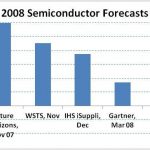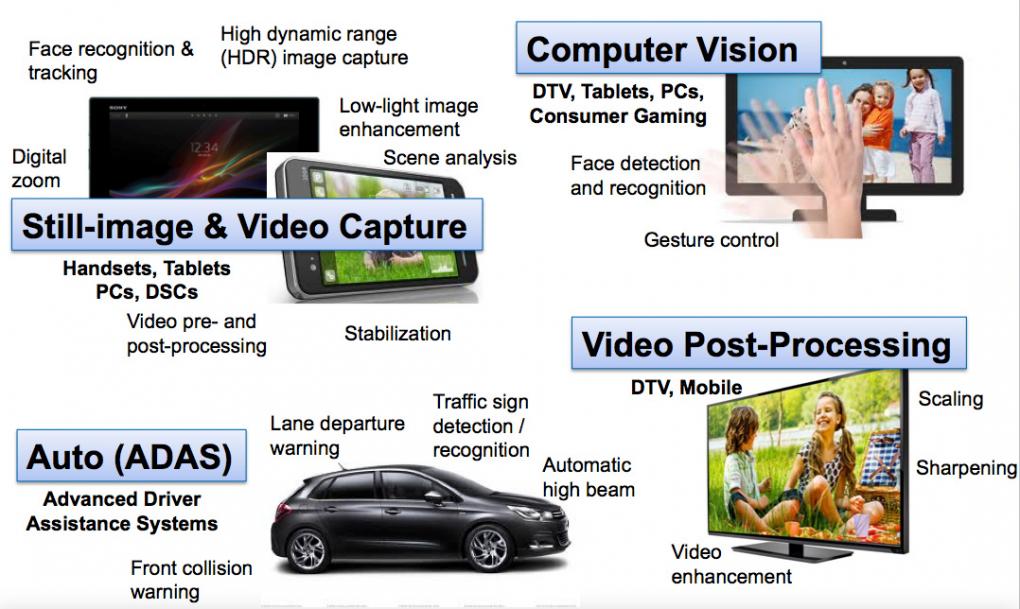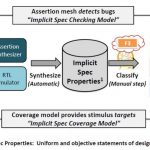Most mixed-signal design teams don’t use data management. Well, that’s not entirely true, everyone has to do data management of some sort, it is just that it is often very ad hoc, often done by some vaguely systematic way of doing file naming, using email to keep track of changes, no access control and so on. This leads… Read More
Tag: semiconductor
OTP based Analog Trimming and Calibration
Embedded NVM technology based functions can be implemented in large SoC designed in advanced technology nodes down to 28nm, as there is no requirement for extra mask levels, like when integrating Nand Flash, negatively impacting the final cost. And it is also possible to integrate One Time Programmable (OTP) to store trim and … Read More
Wally Rhines: Name That Graph!
Wally Rhines gave the keynote at DVCon yesterday. He started out with a game of “name that graph” which was unfortunately a bit spoiled since when the names were revealed the first line was off the top of the screen. But he extrapolated several trends such as the decreasing number of fabs (the current trend is that there… Read More
High and Low: High Level Synthesis and Low Power
It is so widely accepted that it is already a cliche to say that “power is the new timing.” With more and more chips, the major challenge is not so much to meet timing but to meet timing without blowing out the power budget. Otherwise, you could just crank up the clock rate.
I’m going to be lazy so you can insert your … Read More
Can Japan Regain Semiconductor Leadership?
In the 1980s, Japan was seen as the leader in the semiconductor industry. Their quality was higher, especially in memories, and the US was worried about falling behind. In fact Sematech was created in 1987 by the US government and a consortium of 14 US-based semiconductor companies primarily to pool investment on common problems… Read More
Prediction is very difficult, especially about the future
The above quote is attributed to both physicist Niels Bohr and baseball’s Yogi Berra. The statement certainly applies to predicting the semiconductor market. Semiconductors operate on physical principles. However the market for semiconductors is affected by numerous factors. The outcome of a baseball game can be determined… Read More
Developing ARM v8 Code…Today
You are going to be developing software for an SoC that contains an ARM Cortex-A57 64-bit CPU. Or perhaps it is an SoC containing ARM’s hybrid big.LITTLE multi-core architecture that combines one or more low power cores with some high power, high performance cores to get the best of both worlds: high throughput when it is needed… Read More
Video? Tensilica Has You Covered
Video is a huge growing area and advanced imaging applications are becoming ubiquitous. By “advanced” I mean more than just things like cameras in your smartphone. There is lots more coming, from high-dynamic range (HDR) photography, gesture recognition, more and more intelligent video in cars to keep us safe, … Read More
Assertion Synthesis: Atrenta, Cadence and AMD Tell All
Assertion Synthesis is a new tool for verification and design engineers that can be used with simulation or emulation. At DVCon Yuan Lu of Atrenta is presenting a tutorial on Atrenta’s BugScope along with John Henri Jr of Cadence explaining how it helps emulation and Baosheng Wang of AMD discussing their experiences of the… Read More
Want 10nm Wafers? That’ll Cost You
As you know, I’ve been a bit of a bear about what is happening to wafer costs at 20nm and below. At the Common Platform Technology Forum last week there were a number of people talking about this in presentations and at Harvey Jones’s “fireside chat”.
At the press lunch I asked about this. There are obviously… Read More











